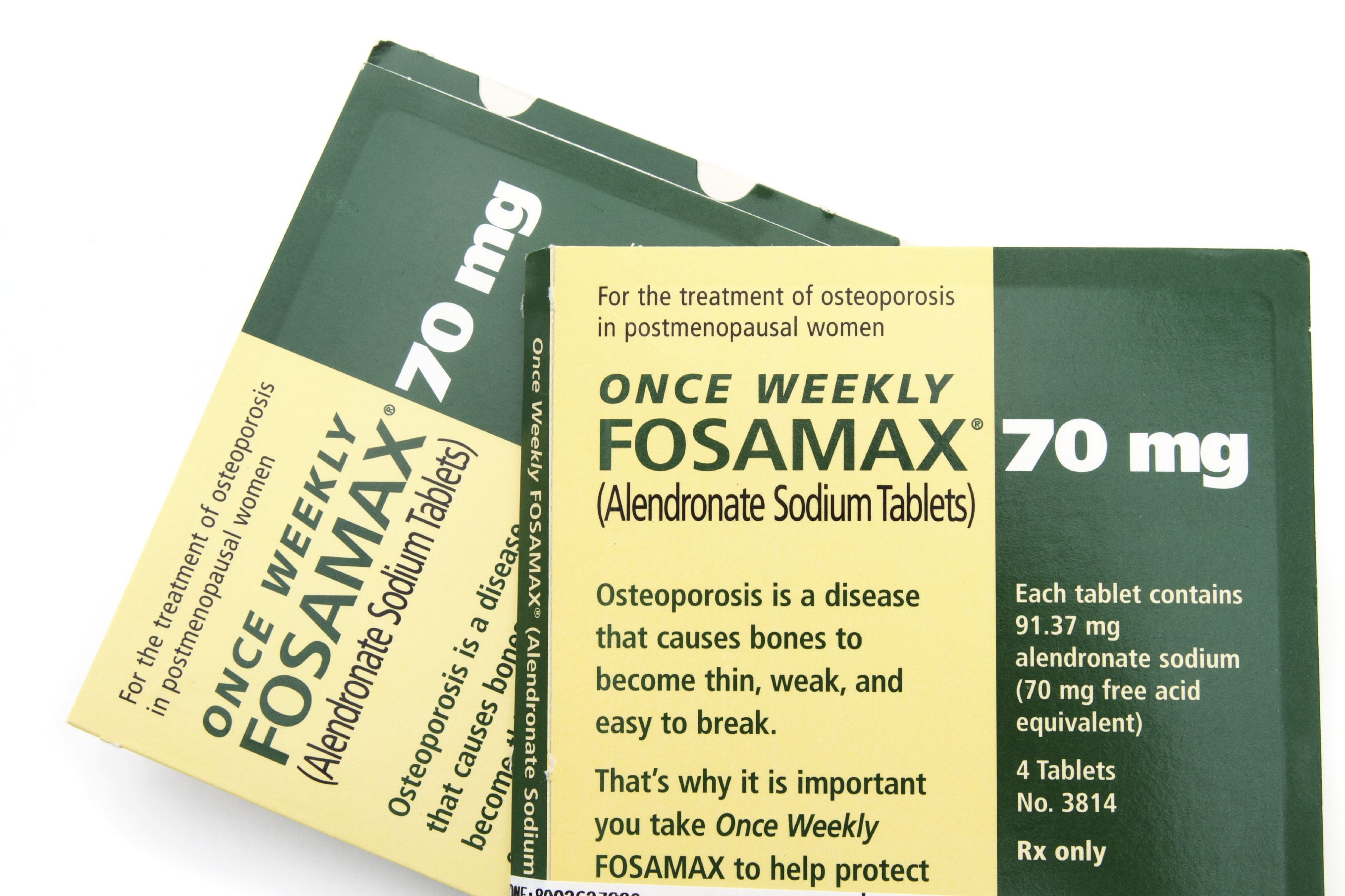
Fosamax, a biophosphonate, is very commonly used for osteoporosis. It works by slowing bone loss and increasing bone mass, and yet did you know that it can cause jaw necrosis? The warning initially had been that cancer patients on the drug were more at risk, but now it seems that if you had recent dental work on infections, you are at a higher risk as well. How can this FDA approved medication be associated with pain, swelling, infection and exposed bone in the jaw?
Even though the FDA approved the drug in 1995, it took them until 2008 to issue this statement: ?FDA is highlighting the possibility of severe and sometimes incapacitating bone, joint, and/or muscle (musculoskeletal) pain in patients taking bisphosphonates.Although severe musculoskeletal pain is included in the prescribing information for all bisphosphonates, the association between bisphosphonates and severe musculoskeletal pain may be overlooked by healthcare professionals, delaying diagnosis, prolonging pain and/or impairment, and necessitating the use of analgesics.?
See the full warning at: http://www.fda.gov/Drugs/DrugSafety/PostmarketDrugSafetyInformationforPatientsandProviders/ucm101551.htm
Biophosphonates in general, should be used with caution. Biophosphonates, especially in the case of osteoporosis, cause the bones to have constant turnover, and inhibits the digestion of bone by osteoclasts. And vitamin D, as we know, stengthens our bones. Biophosphonates actually create an abnormal bone, which is relatively fine for about seven years and then becomes more prone to breaking. It?s also noted that prolonged treatment, while it can decrease the number of fractures, can actually increase the harm in the fractures, making them more painful and slower to heal. If you are considering taking Fosamax, check first with your doctor, and educate yourself on all your options.
Biphosphanates ( Fosamax ) alternatives:
Bioidentical Hormone Replacement Therapy.
Vitamin D: the important thing is to ensure, that your vitamin D level is adequate! Taking vitamin D is not enough!
Make sure that you are getting enough Vitamin A and vitamin K2.
Move naturally: have your walk every day, do your groceries, gardening etc.. Do not take a car or bus for a short trips when possible.
Eat plenty of fresh fruits, greens and vegetables.
Avoid dairy and wheat.
Get enough sleep.

